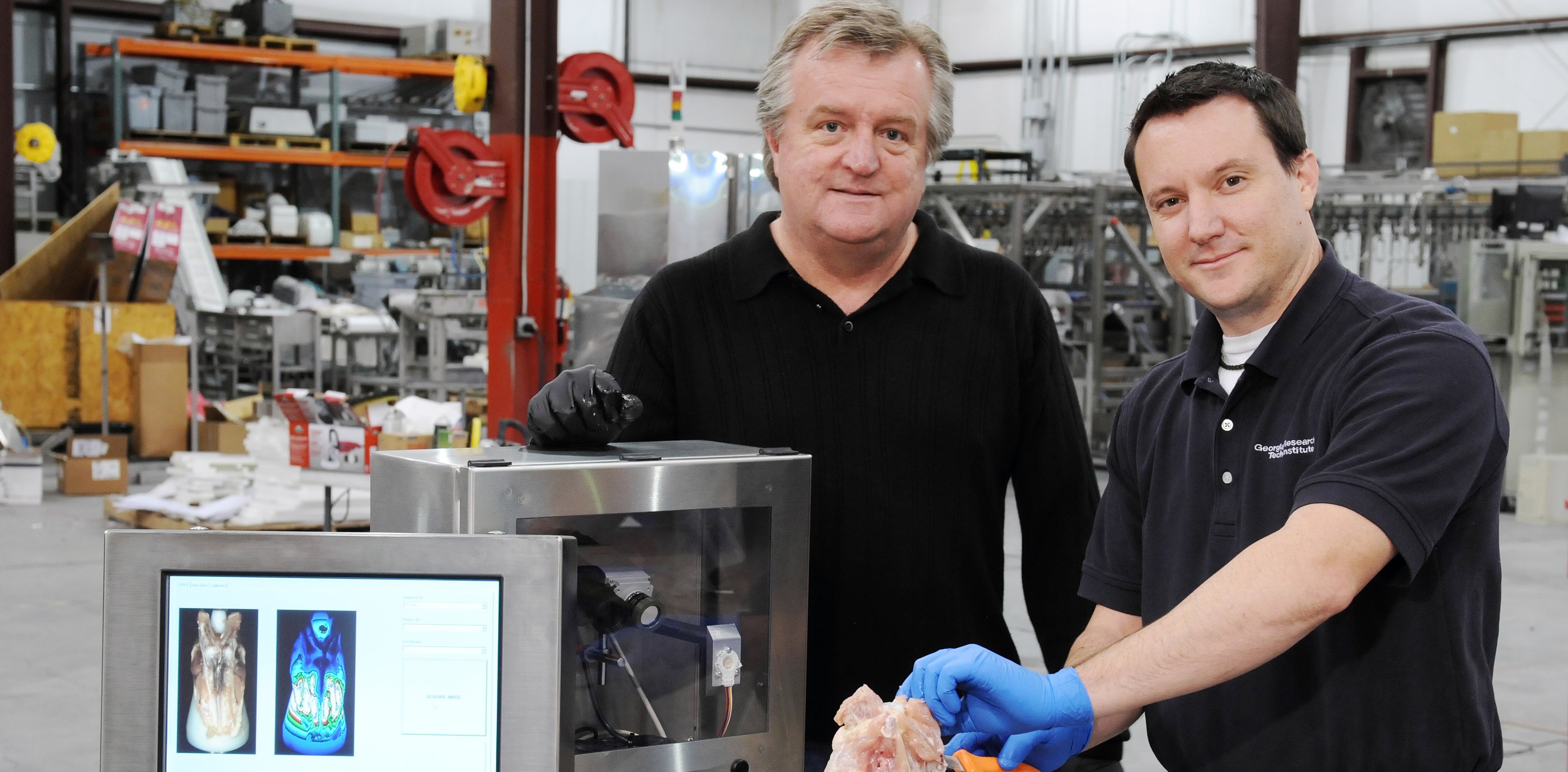
The Georgia Tech Research Institute’s (GTRI) Poultry Deboning Line Screening System is one step closer to making its way to processing plants. The initial steps of technology transfer are underway as Gainco Inc. has begun commercial testing of the system. The technology transfer arrangement enables Gainco, a Gainesville, Ga.-based equipment developer for the poultry, meat, and seafood processing industries, to use the automated vision-based system as part of its proprietary YieldScan™ Rapid Yield Analyzer.
The first of its kind for the poultry industry, Gainco hails the YieldScan™ as a revolutionary product that will take deboning line operations to new levels of accuracy and productivity in yield detection management. Yield detection involves measuring the amount of meat removed from a chicken frame during deboning, as well as the amount of meat left on the frame. This is extremely important to a poultry processor’s bottom line, because every bit of meat removed increases yield that, in turn, increases profits.
The patented imaging technology behind YieldScan™ was developed by GTRI researchers over a two-year period. The system employs a special illuminated cone and sophisticated software algorithms, which use a combination of a color image and the illuminated cone image to estimate the amount of remaining meat, known as yield loss. It can make these measurements in less than a second and has a high correlation with measurements performed manually.
“The uniqueness of the system is its use of internal illumination technology that enables many more bird frames to be evaluated rapidly,” explained Colin Usher, GTRI research scientist and lead developer. “This eliminates the need for scraping during the quality control process.”
The latter refers to the current yield measurement technique, where operators use a special knife to scrape the chicken frame for any remaining meat. This manual process, according to Usher, is not ideal for measuring yield as the amount of meat removed can vary among operators based on factors such as skill and fatigue, which can have an effect on the accuracy of the processor’s statistical predictions. The process is also laborious and time-consuming, limiting the number of frames that can be evaluated.
“Yield management allows processors to monitor each deboning line’s performance in real time and set statistical process control points to identify when any particular line is deviating from the expected performance,” said Usher.
As a result, he explained, processors can quickly identify when a particular line is faltering and address the problem, potentially reducing yield loss and increasing revenue.
The system can also characterize yield loss for individual regions on the frame such as the left and right clavicle and left and right tender areas. These characterizations, noted Usher, could allow processors to identify which workers on the line are fatigued or are exhibiting a drop in performance, adjust worker rotation schedules and placement of workers to better optimize the deboning line, and determine when a particular worker is performing well enough to move from a training line onto a full-speed deboning line.
In a nutshell, YieldScan™ Rapid Yield Analyzer takes the subjectivity out of yield management and helps processors reclaim more high-value meat while also improving worker productivity.
“We are excited to continue our partnership with GTRI and leverage their expertise in advanced imaging systems development to bring this innovative product to our growing product line of engineered yield management systems,” said John Daley, Gainco’s director of sales and marketing.





